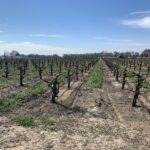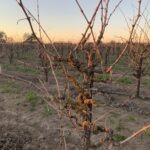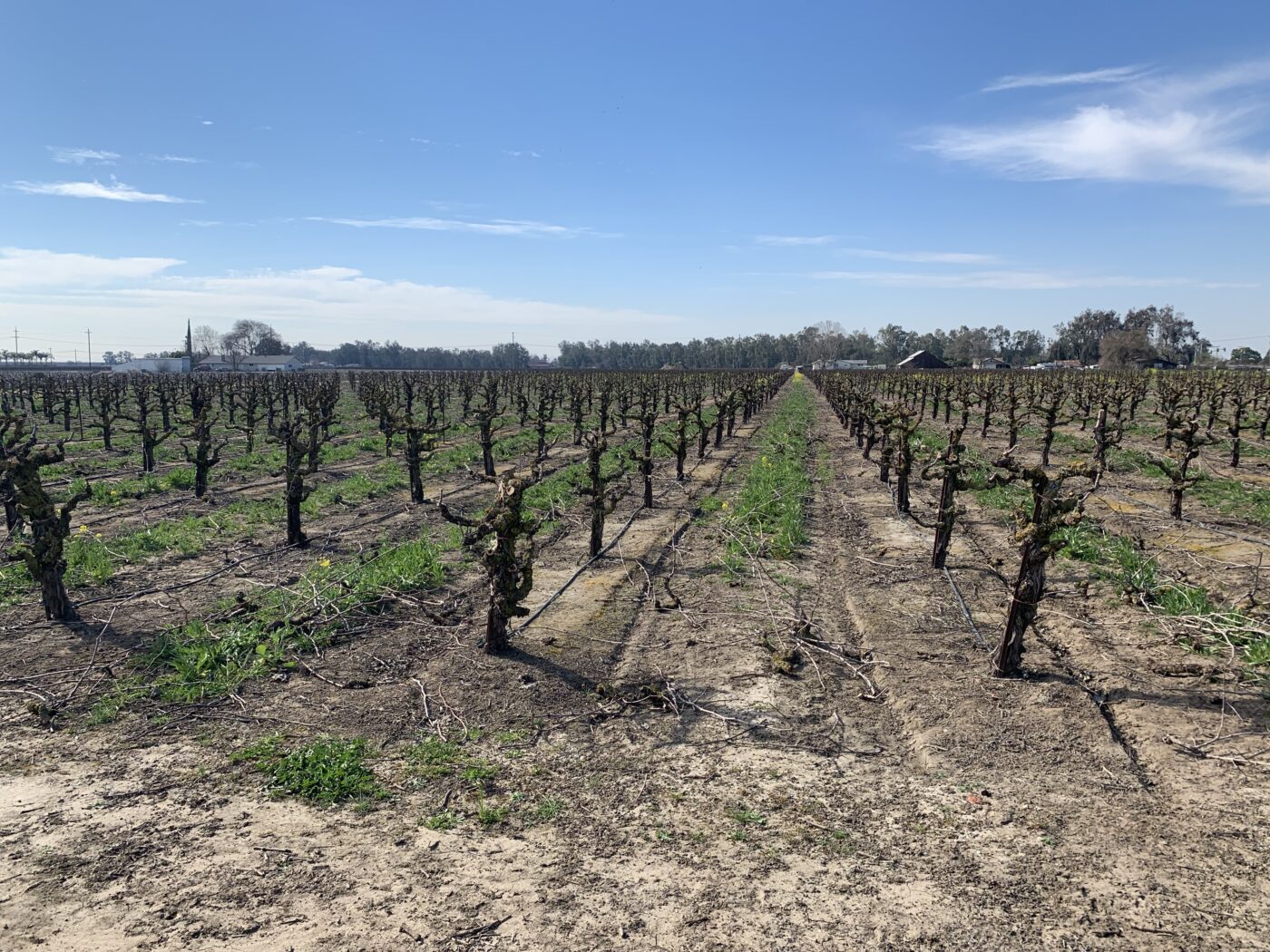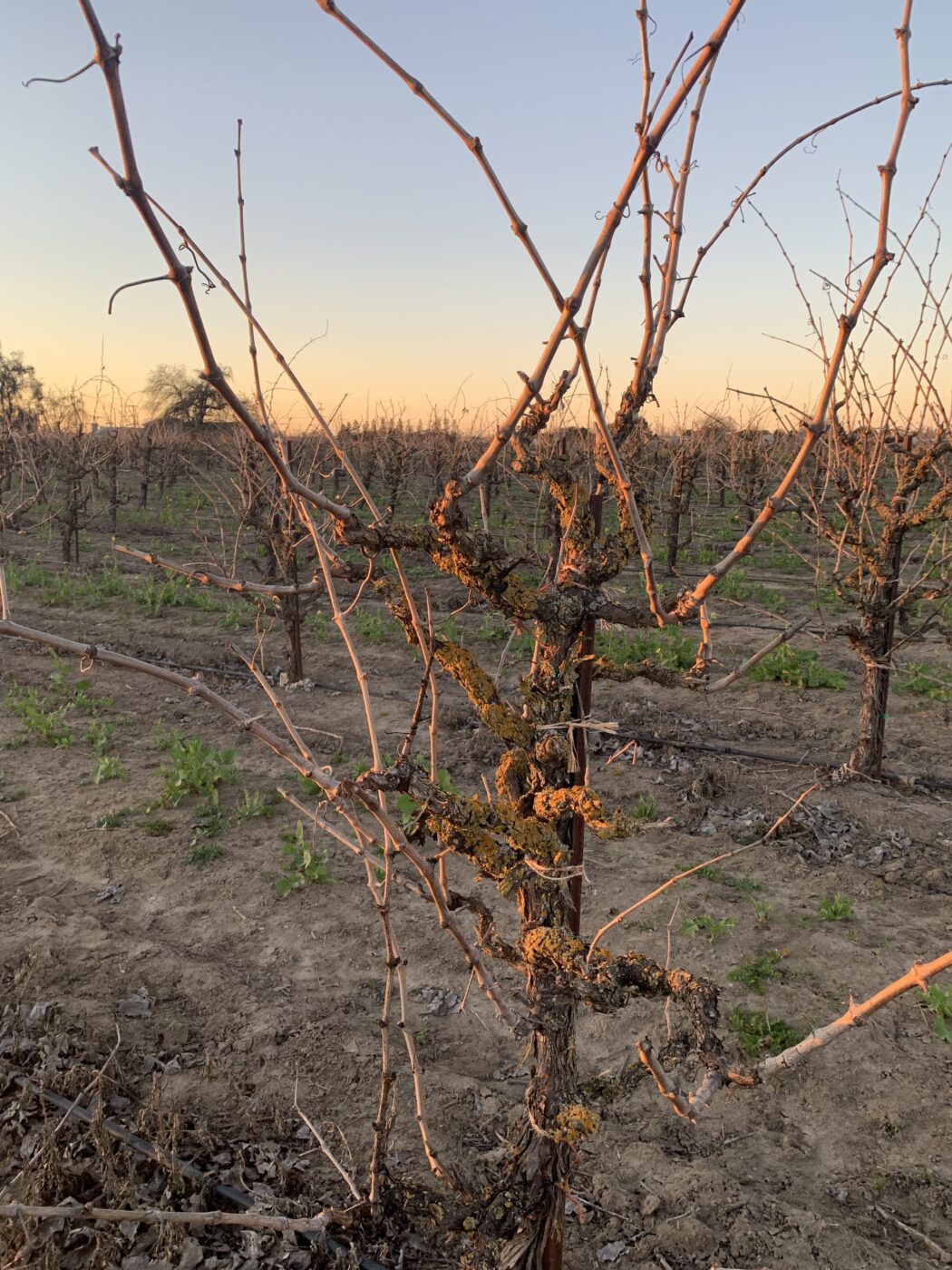Nicolini Ranch
- AVA
- Lodi
- Decade
- 1930s
- County
- San Joaquin
- Sub-Appellation
- Mokelumne River
- Current Owner
- Alfred Nicolini
- Planted by
- Roca Ramily
- Location Notes
-
11582 N Ham Lane
- Wineries
-
The grapes never had a home in a single vineyard label. For the last 10 years, the grapes were mostly sold off to larger producers for blending purposes and there are no records from earlier days. The vineyard was trained to produce large quantities of grapes – it almost killed the vines – and the weeds were often taller than the vines. The current owners were ready to pull the field out.
- Characteristics
-
Bigger clusters with smaller berries were harvested early September – there were no issues with rot or any other diseases. The vineyard is recovering well from the performed adjustments. Quality of fruit is great. The first vintage of a singe-vineyard ancient vine Carignan will be released in the summer of 2023.
- Description
-
The vineyard is a total of 9 acres including a barn and an office building. It is divided into two 4-acre blocks which can be irrigated separately. The front block has mostly original vines back from the very early 1930s. The back block was re-planted in 1950 – some single vines of Flame Tokay can be found as well.
Edison and Johnnye Shell purchased the lot around 1947 after he returned from the Second World War. At the very early days, there were cherry trees along the canal in the back block. The front block was well established with Carignan by then.
According to oral history, the vineyard was owned by the Roca family. Evidence of stills were in the barn pit and the house basement. The owners applied for a winery permit in 1940 and documents of application still exist.
The barn pit was there when the property was purchased by the Shells. The next door neighbor told stories that during Prohibition bootleg booze was sold from there. Cars turned off lights as they approached at night, pulled in and left. The oldest vines were probably producing during that time.
Markus Wine Co. was approached in early 2021 to help grow quality fruit and to open this vineyard up to a new market. The vineyard was immediately re-pruned, heavily suckered and shoot-thinned, and excess fruit was dropped.
Grapes were locally used for Markus Wine Co. and a small portion was sold to wineries out of state.
- Facts
-
The sandy loam soils have a high waterholding capacity. There is an existing deep root system since the block was dry-farmed in the early years. After decades of furrow irrigation, the vineyard is now set up on a much more efficient drip irrigation system.
Free standing old vines with no trellis system makes the vines look like trees during the summer.
- Submitted by
- Markus Wine Co. - Markus Niggli
- Certified



